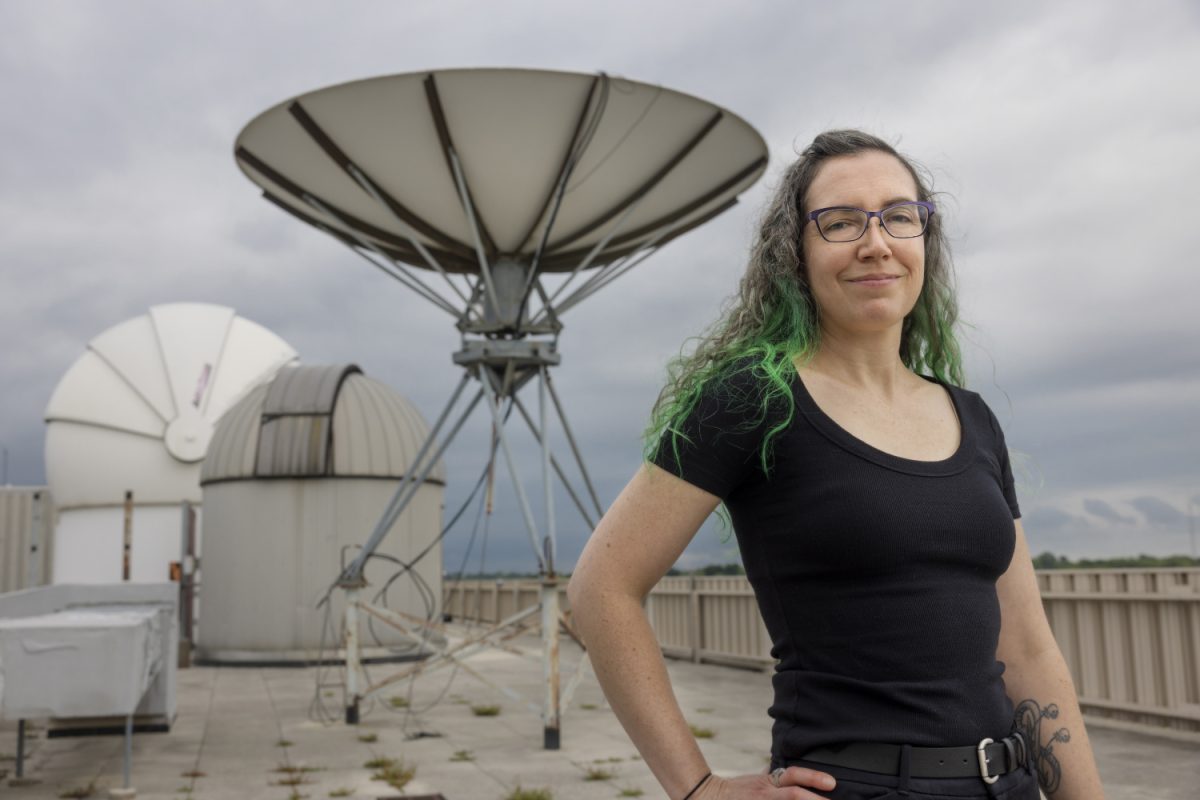In a male-dominated field, University of Iowa space and plasma physics associate professor Allison Jaynes faces inequity without hesitation.
Jaynes recently won the Katherine E. Weimer Award for women working in the plasma physics field as well as the 2023 American Geophysical Union James B. Macelwane Medal, which recognizes early career scientists for their contributions to earth and space science.
“I’m just really humbled and appreciative that I got these awards,” Jaynes said. “I try to just do the best I can in my job all the time, and I care deeply about my science and the people that I work with in my field.”
Jaynes, who joined the UI faculty in 2017 and has a Ph.D. from the University of New Hampshire, said she was especially honored to receive the Weimer Award.
“There aren’t that many women in physics in general, especially when you start getting into subsets of physics like plasma physics,” she said. “It’s nice that there are awards that are focusing on these more underrepresented groups, so I’m really proud to hopefully represent lots of women in the reception of that award.”
UCLA professor and fellow plasma scientist Jacob Bortnik nominated Jaynes for both awards. Bortnik said he has worked alongside Jaynes for many years, and she is “beyond deserving” of these recognitions.
“She deeply cares about her students and deeply cares about diversity and equity,” Bortnik said. “She’s kind of been at the forefront of this in our field, and she’s just a great, super-bright, honest, enthusiastic person who is 100 percent all in on being a professor. I think no one’s more worthy.”
Jayne’s current research involves understanding how plasma from the sun affects the Earth’s atmosphere and creates space weather.
She is a co-investigator for NASA’s Van Allen Probes, which monitor the Earth’s Van Allen radiation belts — a zone of charged particles surrounding the Earth that help protect it from solar storms and wind. Jaynes said her next big project includes a proposal to NASA that she led a spacecraft mission examining how plasma in space can cause loss of local ozone.
Her interest in plasma physics began when she was studying pulsating aurora while she was in graduate school at the University of New Hampshire.
Outside of her successes in science, Jaynes mentors several graduate students at UI. She said she makes an emphasis to include students in her research and projects.
Rachael Filwett worked with Jaynes from 2018-22 as a postdoctoral research scholar and praised Jaynes as a peer mentor and friend. Filwett now works as an assistant professor of physics at Montana State University.
“She has such a crazy high work ethic in a really good way,” Filwett said. “She really gives her heart to all of her work, and she’s an incredible scientist. I have so much respect for her because she’s also an incredible person and has tried to really integrate more students involved in research and more people from diverse backgrounds and minority statuses.”
Jaynes said she has known strong women leaders who were able to break barriers through determination and wants to help support all kinds of women who want to work in science fields.
“If you can identify mentors and sources of inspiration, that really helps keep you on the path that you feel you really want to follow,” Jaynes said.
Jodie McLennan, one of Jaynes’ current UI graduate students, appreciates that Jaynes provides her students with opportunities to get hands-on experience in the physics field.
“I’m extremely lucky to have her as an advisor,” McLennan said. “Not only is she a role model for me, she’s an advocate for her students, and uses her network to connect us to people in the field.”



